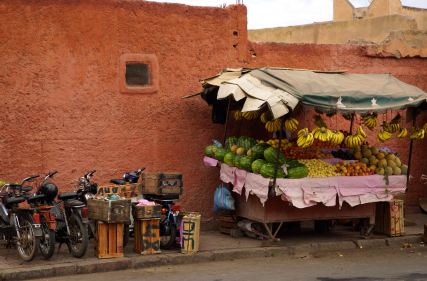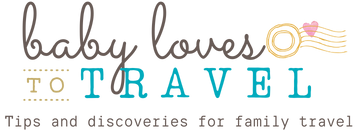
We recently visited the Red Sea in Egypt (Dahab) for a family holiday, a location where the local hygiene standards are not necessarily up to par with what you might expect from a summer holiday in Paris or Rome. My biggest concern (and even hesitation for visiting) was how I was going to feed my then 11 month old. I was really worried that she was going to fall ill with a stomach bug. She was still being breastfed but she was also on solids, and we’d weaned her in such a way (baby-led weaning) that she was eating the same food as us, not pureed baby food. Here are some tips that I followed and recommend for food safety whenever travelling to a developing nation, and I’m pleased to tell you that it has worked for me so far:
- Take anti-bacterial wipes wherever you go. They are great for wiping down table tops and high chairs, as well as grimy hotel/restaurant surfaces.
- Take sterilisation tablets for washing baby’s utensils, plates, sippy cups, bottles, etc. Alternatively you can always use bottled water. The key here is to avoid contact with local water which may contain dangerous micro-organisms, plus the water most likely has not gone through the same quality of filtration process you would expect back home.
- Only use bottled water for brushing teeth and if your baby uses the bath make sure they do not sip the bath water.
- Only drink bottled water and avoid ice cubes in drinks as these are generally made from local water.
- Avoid feeding your child salads, raw vegetables and shellfish, particularly as the former are often rinsed in local water.
- If you are going to give your baby or toddler local food, make sure that it is freshly prepared, thoroughly cooked and still piping hot when it is served to your table. In particular make sure that meat is thoroughly cooked through because if it is still rare it could contain harmful bacteria. Cooking is the most effective way for killing dangerous micro-organisms in food.
- You can give your baby local fruit as long as it has skin (that is undamaged) and you have peeled the fruit yourself with clean hands. Bananas and melons are available in abundance in many tropical locations and they are a great safe snack to offer. Again, this recommendation has to do with minimising exposure to local water.
- Do not give your child dairy foods that are unpasteurised and not properly refrigerated. If your toddler has moved onto cow’s milk, you can give your child the local milk but it must be pasteurised and refrigerated well. Alternatively, if you wish to be 100% safe, offer long-life UHT milk.
- Don’t buy locally made ice-creams, especially from unreliable sources such as a kiosk on the beach. Local ice-cream could be made from unpasteurised milk, plus you don’t know how it has been treated, for example it may have been melted and re-frozen.
- If you’re truly concerned about the quality of local food take enough baby/toddler meals and snacks with you to cover the trip. I know it’s not ideal feeding your baby/toddler ready made meals, but sometimes when you are on holiday (especially in developing nations) this is the safest option. Although we baby-led weaned our daughter, whenever we go on holiday to a location where I’m concerned about her health I always bring a stockpile of ready-made food just in case, there are a lot great organic brands now readily available.
If you want further information on this overall topic the World Health Organisation has produced a great brochure – Guide on Safe Food When Travelling. You may also be interested in this article on Cow’s Milk for a Toddler in a Foreign Country.
Thank you for reading!

2 Comments
Great tips! I think the tip about stopping baby from drinking the bathwater is the hardest to enforce! I think we settled on sponge baths most of the time when my daughter was young.
Great tips we will definitely be bring on the road with us soon. Thanks so much for linking up with Travel Tips Tuesday this week (#travtipstues)!